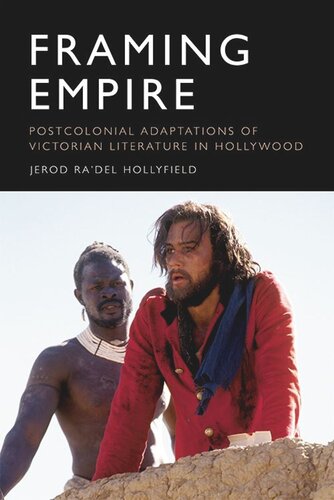

Most ebook files are in PDF format, so you can easily read them using various software such as Foxit Reader or directly on the Google Chrome browser.
Some ebook files are released by publishers in other formats such as .awz, .mobi, .epub, .fb2, etc. You may need to install specific software to read these formats on mobile/PC, such as Calibre.
Please read the tutorial at this link: https://ebookbell.com/faq
We offer FREE conversion to the popular formats you request; however, this may take some time. Therefore, right after payment, please email us, and we will try to provide the service as quickly as possible.
For some exceptional file formats or broken links (if any), please refrain from opening any disputes. Instead, email us first, and we will try to assist within a maximum of 6 hours.
EbookBell Team

5.0
60 reviewsThis book examines postcolonial filmmakers adapting Victorian literature in Hollywood to contend with both the legacy of British imperialism and the influence of globalized media entities. Since decolonization, postcolonial writers and filmmakers have re-appropriated and adapted texts of the Victorian era as a way to ‘write back’ to the imperial centre. At the same time, the rise of international co-productions and multinational media corporations have called into question the effectiveness of postcolonial rewritings of canonical texts as a resistance strategy. With case studies of films like Gunga Din, Dracula 2000, The Portrait of a Lady, Vanity Fair and Slumdog Millionaire, this book argues that many postcolonial filmmakers have extended resistance beyond revisionary adaptation, opting to interrogate Hollywood’s genre conventions and production methods to address how globalization has affected and continues to influence their homelands.